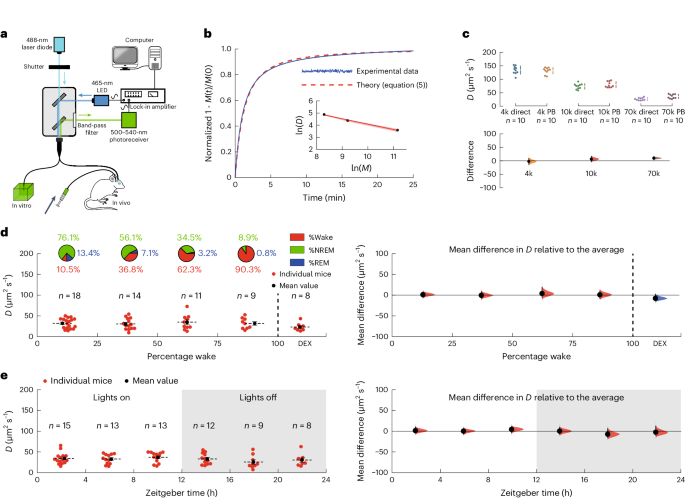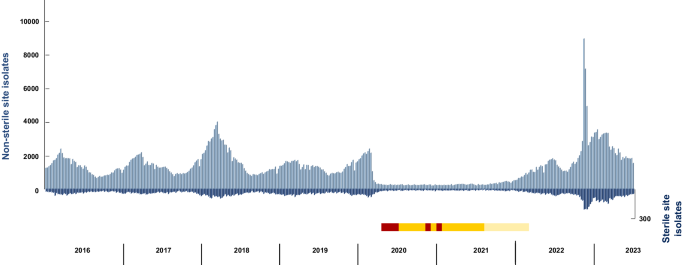2024-05-13 インペリアル・カレッジ・ロンドン(ICL)
過去10年間、睡眠の主な説明として、脳が毒素を排出する機会を提供するという説が有力でした。しかし、インペリアル・カレッジ・ロンドンの英国認知症研究所(UK DRI)の科学者が主導した新しい研究は、これが真実でない可能性を示唆しています。研究では、マウスの脳内での毒素の排出と液体の動きを測定し、睡眠中や麻酔下でそれが著しく減少することを示しました。蛍光色素を用いて脳内での移動速度を測定した結果、睡眠中のマウスでは約30%、麻酔下のマウスでは50%減少していました。この研究結果は驚くべきものであり、今後はなぜこのようなことが起きるのかを解明する必要があります。
<関連情報>
- https://www.imperial.ac.uk/news/253273/scientists-find-sleep-clear-brain-toxins/
- https://www.nature.com/articles/s41593-024-01638-y
脳内クリアランスは睡眠中と麻酔中に減少する Brain clearance is reduced during sleep and anesthesia
Andawei Miao,Tianyuan Luo,Bryan Hsieh,Christopher J. Edge,Morgan Gridley,Ryan Tak Chun Wong,Timothy G. Constandinou,William Wisden & Nicholas P. Franks
Nature Neuroscience Published:13 May 2024
DOI:https://doi.org/10.1038/s41593-024-01638-y

Abstract
It has been suggested that the function of sleep is to actively clear metabolites and toxins from the brain. Enhanced clearance is also said to occur during anesthesia. Here, we measure clearance and movement of fluorescent molecules in the brains of male mice and show that movement is, in fact, independent of sleep and wake or anesthesia. Moreover, we show that brain clearance is markedly reduced, not increased, during sleep and anesthesia.


